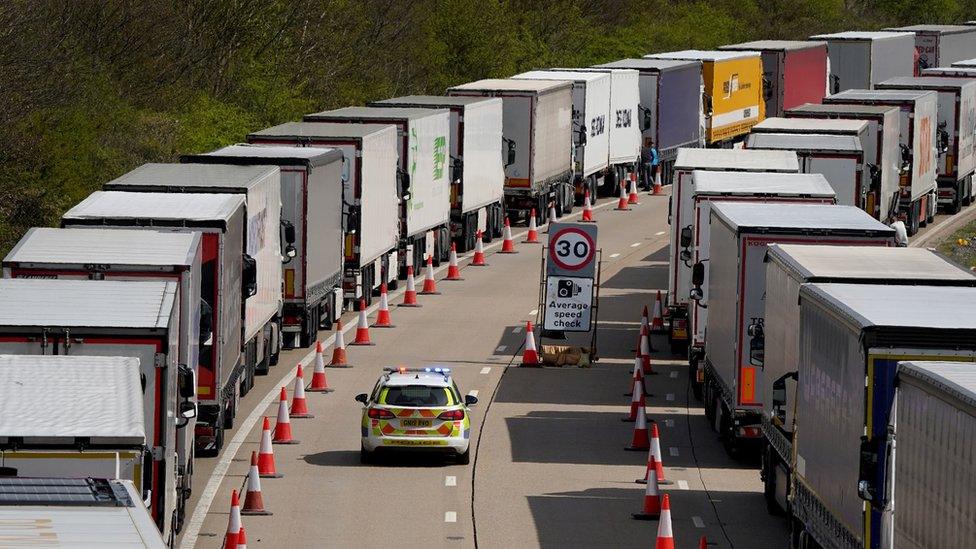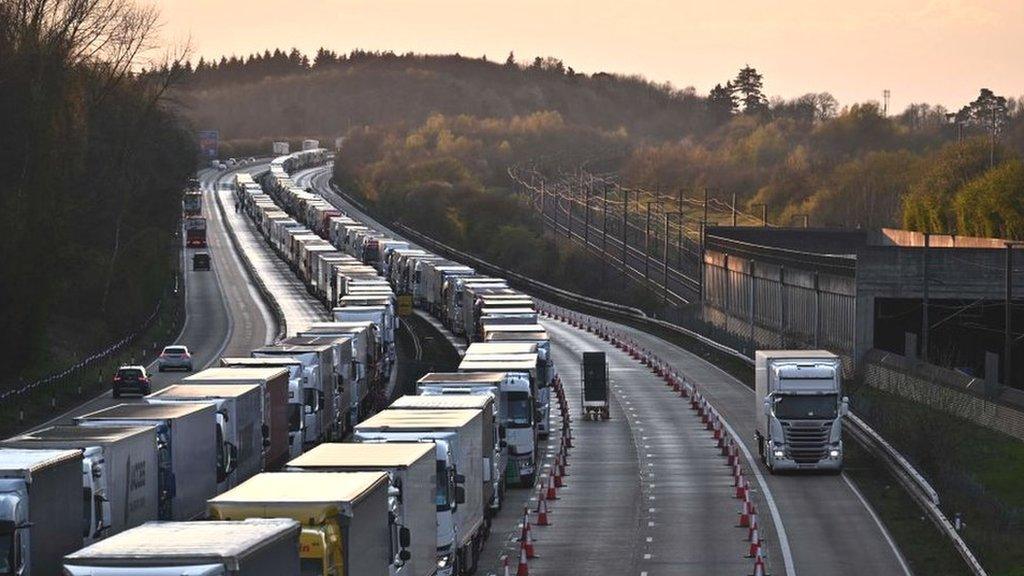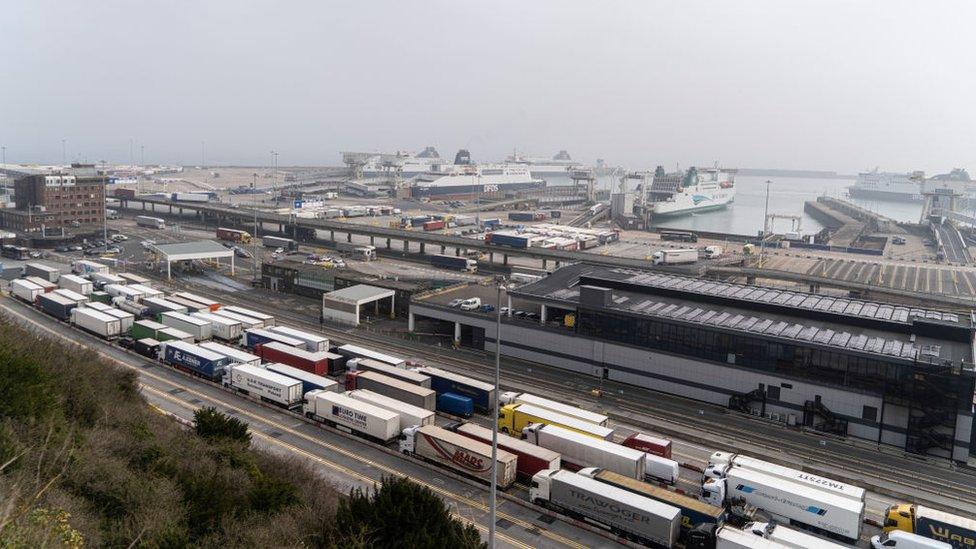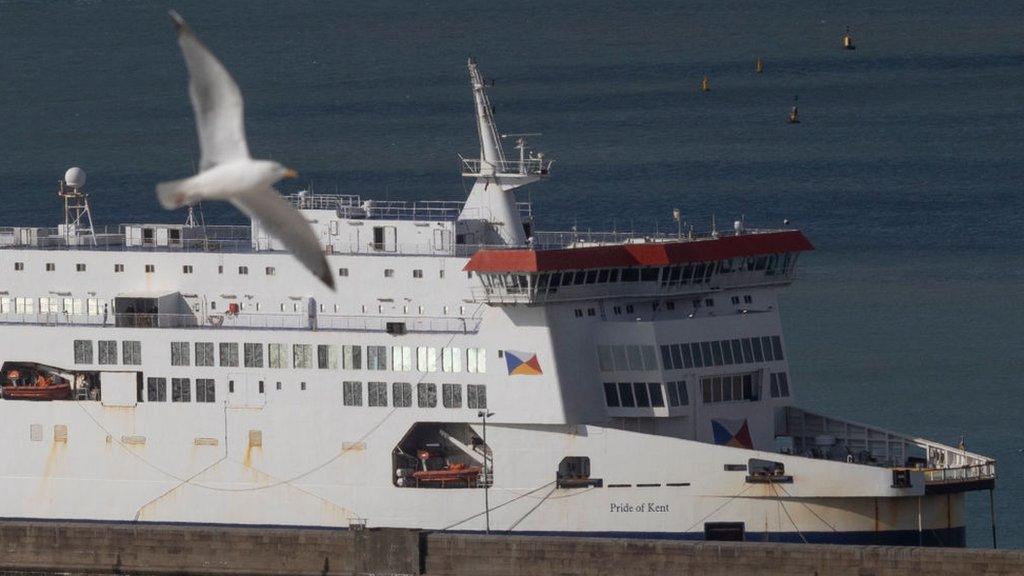Priority for fresh goods at Dover not realistic, minister says
- Published
- comments

Lorries have faced long queues at the port of Dover in recent days
Introducing a prioritisation system to help perishable goods get through long queues at Dover is not a realistic option, the environment secretary says.
George Eustice told BBC Breakfast such a system would be difficult to stand up at short notice and on a large scale.
On Sunday, hauliers warned fresh produce was losing quality and value, with some lorry drivers waiting more than 24 hours to cross into Europe.
But Mr Eustice said the backlog was now starting to clear.
He added that the beginning of the Easter holidays had caused a "sharp increase in traffic" around the port, which had been exacerbated by P&O Ferries routes being suspended.
"My understanding is that things are now moving in the right direction so this was a temporary problem caused by a surge of traffic around the commencement of the Easter period," he said.
Asked about calls from some in the industry to introduce a priority lane for lorries carrying perishable goods, Mr Eustice said: "I don't think it's a realistic option at such short notice."
He said the government had looked at this option previously, particularly for perishable fish, in the context of a possible no-deal Brexit.
However, he added: "You need a way of identifying the lorries... and then escort them past other traffic to get on to the ferry and it's quite a complicated thing to pull off actually and quite difficult to do on that scale."
Queues around Dover eased on Sunday but the British Meat Processors Association said some of its members had waited for 24 hours or more to cross into Europe.
The association's chief executive Nick Allen has warned the delays mean the UK is losing business at a time when its members' products are in demand, as customers are turning to other countries to source goods.
The Operation Brock traffic management system, where lorries heading to Dover queue on one side of the M20, was put in place last week to deal with the congestion.
P&O's Dover-Calais routes are still suspended, following its dismissal of almost 800 staff last month without notice.
The company has said it will not resume services on the route before Friday at the earliest.
Its ships must pass safety inspections by the Maritime Coastguard Agency before they are allowed to sail again.
Bad weather and problems with a key IT system for custom checks after Brexit have also contributed to traffic at the UK's busiest port.
Toby Howe, from the Kent Resilience Forum, which manages emergency planning for the county, said Sundays and Mondays were always quieter for freight traffic.
"Currently traffic is flowing through the traffic management system to get to Eurotunnel and get to the port. But during today and over this week it will all pick up again," he told the BBC.
In a statement, the Port of Dover said its staff were working "non-stop to minimise disruption and keep traffic flowing across the Channel".
A spokesperson said all the roads to the port had been free-flowing since Sunday morning.
"Working with just half of the usual ferry capacity last week and only two thirds available this past weekend, the port managed to process over 30,000 passengers each weekend; treble that of the traffic seen in the corresponding period in 2021," the statement added.
Related topics
- Published10 April 2022

- Published8 April 2022

- Published6 April 2022
